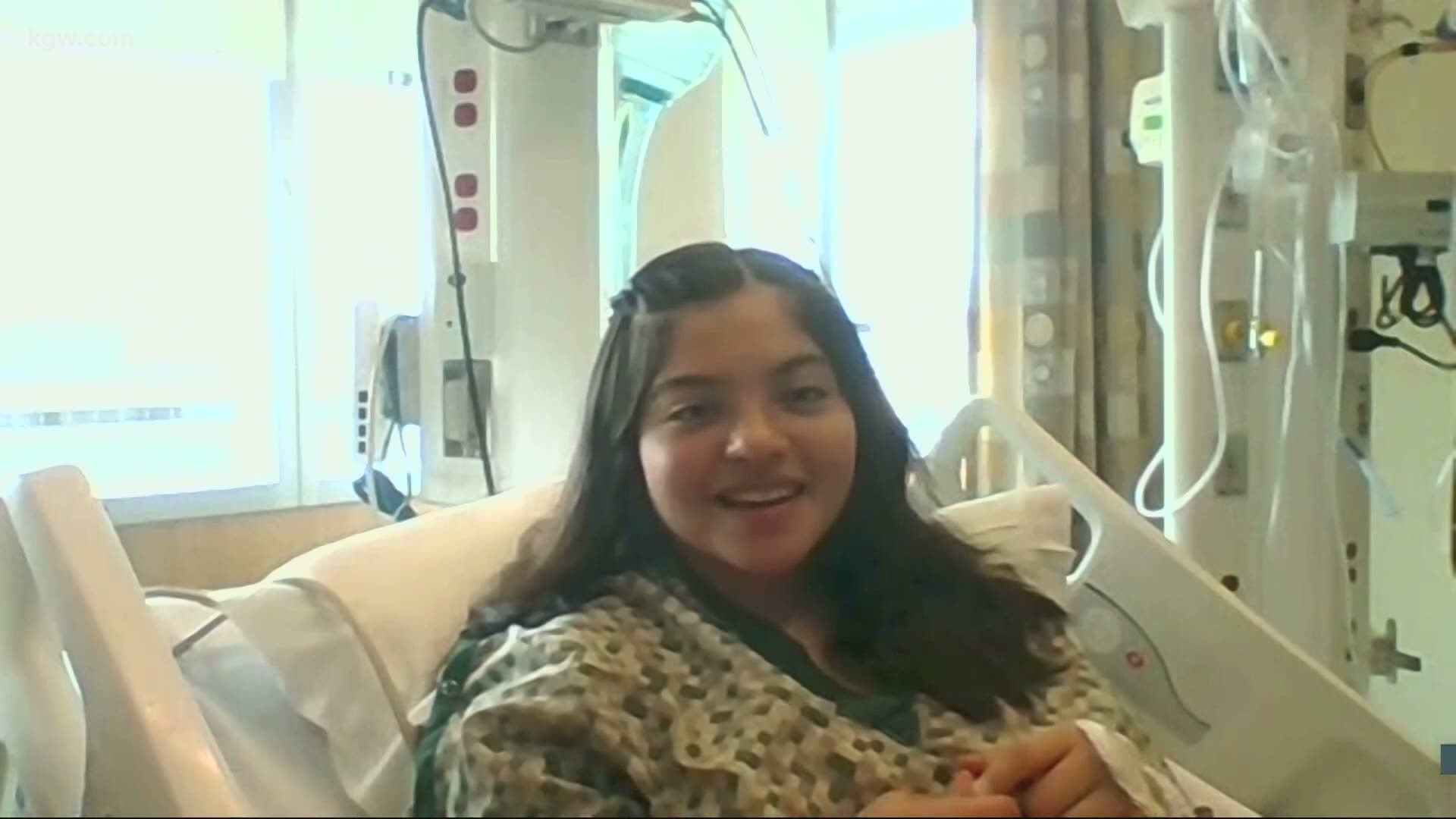PORTLAND, Ore. — Oregon health officials say they have learned of the state’s first case of a pediatric condition linked to COVID-19.
Pediatric multi-system inflammatory syndrome is a rare condition in children that experts believe is associated with the coronavirus.
A young girl who had COVID-19 is now being treated for the syndrome at Randall Children’s Hospital in Portland, the Oregon Health Authority said Wednesday.
“This syndrome appears to be an uncommon but serious complication of COVID-19 in children,” said Dr. Paul Cieslak, medical director for infectious diseases and immunizations at OHA.
Leah Lopez is the Oregon girl battling pediatric multi-system inflammatory syndrome. She says she first started experiencing symptoms late last week.
"I started to get some weird stomach and headache pains," she said.
A fever, shortness of breath, and red eyes followed. Lopez's parents took her to see her primary care physician who sent her immediately to Randall Children's. Her condition had deteriorated by the time she arrived.
"Her ultrasound of her heart showed significantly decreased function," said Dr. Mark Buchholz.
Lopez was in cardiac shock. She was given medication and her condition improved within 24 hours.
"Given how well she's responded I'm very optimistic," said Buchholz. "What I don't know is how long it will take and when she'll be fully back to normal."


Reported symptoms of pediatric multi-system inflammatory syndrome include fever, inflammation, and poor function in one or more organs, according to Boston Children’s Hospital, which cited a health alert in the United Kingdom.
The OHA says the syndrome is similar to Kawasaki disease, which causes fever; rash; swelling of hands and feet; redness of the eyes; swollen lymph glands; and inflammation of the mouth, lips and throat.
The treatment for the syndrome is supportive care. Immune globulin has been effective in treating Kawasaki disease.
The OHA will require health care providers to report cases of the condition so it can be tracked.
Lopez, at the young age of 14, urges parents and kids alike to be cautious.
"This thing can get serious and I think it's serious," she said.

